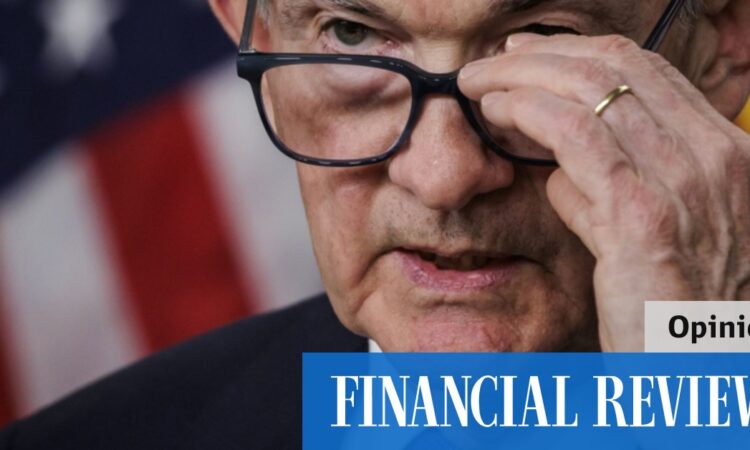
More pessimistic economists warn that persistent inflation means that the US economy is headed for “soft stagnation”, where economic activity slows to a crawl, while inflation remains stubbornly above the Fed’s 2 per cent target. But the optimists argue that the more likely outcome is a “no landing” scenario, with the US economy continuing to enjoy robust economic growth, while inflation remains above target.
They point out that it’s been relatively painless for the Fed to lower inflation to 3 per cent, but reducing it to 2 per cent – the fabled “last mile” – will be challenging. That’s because the fundamental factors driving inflation – the strong US jobs market, and housing-related inflation and higher inflation expectations – are causing price pressures to persist.
The US economy is enjoying robust growth, propelled by strong spending by the government and households. Meanwhile, the sharemarket is at a record high, reflecting a widespread confidence among consumers, businesses and investors that strong economic growth will continue.
Stubborn inflation
The strong rally in US markets means that financial conditions are extremely loose, which is pushing the prices of risky assets, such as share prices and bitcoin, even higher. And even though the unemployment rate ticked up to 3.9 per cent in February, the jobs market remains tight. Wage growth remains well above pre-pandemic levels, even though it has slowed sharply since 2021, particularly for low-paying jobs.
In contrast, managerial and professional occupations have had stable, or only slightly falling wage growth.
What’s more, even though price pressures have eased, inflationary expectations remain well above pre-pandemic levels.
According to the Federal Reserve of New York’s February survey, US consumers’ inflation expectations remain unchanged at 3 per cent for the coming year, but have increased to 2.7 per cent from 2.4 per cent for the next three years.
Expectations that inflation will remain high are concerning because of their effect on consumer and business behaviour. If consumers expect higher inflation, they’re more likely to push for higher wage rises. And if business expect higher inflation in the future, they’re more likely to increase prices to compensate for future rises in labour costs.
Investors, however, are untroubled by the prospect of stubborn inflation because it should allow companies to maintain their pricing power, which will translate into stronger corporate earnings.
Especially since investors remain confident that the Fed will deliver three rate cuts this year, with the first coming in June.
That’s because inflation has already fallen sharply, and if the Fed doesn’t cut rates, then real interest rates will be higher.
Last week, Fed chairman Jerome Powell signalled that the Fed would cut rates even if inflation remained above the central bank’s 2 per cent target.
“We’re not looking for better inflation readings than we’ve had”, he said. “We’re just looking for more of them.”





